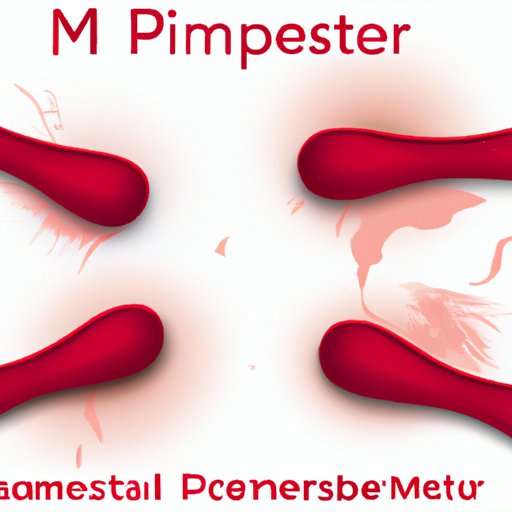
Introduction
Menstrual cycle is the shedding of the uterine lining that results in a woman’s period. The menstrual cycle is generally around 28 days long, but it can vary from 21 to 35 days. Menstruation is influenced by a variety of factors, including age, stress levels, and diet. It’s not uncommon for women to experience delayed periods, which can be concerning. This article aims to provide solutions for women who are seeking to induce their period.
Diet and Exercise
The menstrual cycle is influenced by one’s lifestyle, specifically their diet and exercise. A diet rich in certain foods and regular exercise can help regulate the menstrual cycle.
Specific foods that can help induce periods
Papaya, pineapple, and ginger are the three main foods that can help induce the period. Papaya is rich in vitamins A and C, which can help regulate menstruation. Pineapple has bromelain, an enzyme that breaks down proteins, which can stimulate the menstrual process. Ginger contains gingerols and shogaols, compounds that can induce uterine contractions, promote the menstrual flow, and relieve cramps.
Exercise practices that can help regulate your period
Cardiovascular exercise such as jogging, cycling, or dancing, can improve blood circulation, which can regulate the menstrual cycle. Yoga is a holistic exercise that can help alleviate stress and balance the hormones, which can have a positive impact on the menstrual cycle.
Acupressure and Massage
Acupressure and massage therapy can help improve blood flow and balance the hormones, which can regulate the menstrual cycle.
Techniques for regulating menstrual cycles
Foot massages, abdominal massages, and practicing acupressure on different parts of the body, such as the inner thigh or the back, can help regulate menstrual cycles.
Medications
There are medications that can induce a period by addressing hormonal imbalances or reducing inflammation.
Types of medicines that can induce periods
Hormonal contraceptives, progesterone, and nonsteroidal anti-inflammatory drugs (NSAIDs) are medicines used to regulate the menstrual cycle. Hormonal contraceptives work by controlling the levels of estrogen and progesterone. Progesterone is a hormone that prepares the uterus for pregnancy, and it can also induce menstruation. NSAIDs, such as ibuprofen or naproxen, can reduce inflammation and increase blood flow to the uterus, which can also help initiate menstruation.
Side effects and potential risks of taking medication to induce menstruation
Medications to induce menstruation can have side effects such as headaches, nausea, and changes in mood. Women who are pregnant or may be pregnant, have blood clotting disorders, or liver or kidney problems should not take these medications without consulting a healthcare provider.
Stress-Reducing Methods
Stress can have a negative impact on menstrual cycles. Therefore, reducing stress levels can help regulate the menstrual cycle.
Methods of reducing stress that can induce menstruation
Mindfulness meditation, deep breathing exercises, and progressive muscle relaxation are effective stress-reducing methods that can help promote stable hormonal levels and regulate menstruation.
Herbal Remedies
Herbal remedies can work similarly to medications by addressing hormonal imbalances or stimulating uterine contractions, which can initiate the menstrual process.
Specific herbs that can induce periods
Dong Quai, parsley tea, and cinnamon are effective herbal remedies that can stimulate uterine contractions to promote the menstrual process. Dong Quai and parsley tea can also help regulate hormonal levels. Cinnamon has antispasmodic and anti-inflammatory properties that can alleviate menstrual cramps and initiate the menstrual process.
Safety and efficacy of using herbal remedies to induce menstruation
It’s crucial to be mindful of the potential risks of using herbal remedies. While these remedies have been used for centuries and have proven effective, it’s essential to speak with a healthcare provider before using any herbal remedies to induce menstruation.
Conclusion
Delay of the menstrual cycle can be frustrating and concerning. However, women can be empowered to take control of their menstrual cycle by incorporating healthy lifestyle practices such as a balanced diet, regular exercise, stress-reducing methods, massage, and herbal remedies. It is imperative to discuss with a healthcare provider before using any of the above methods to ensure personal safety and efficacy.




